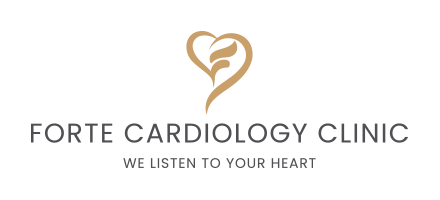Cardiac Rehabilitation (CR) is a comprehensive and multidisciplinary program designed to enhance the cardiovascular health of individuals who have experienced heart-related issues. It encompasses a range of medical, physical, and lifestyle interventions to improve the overall well-being of patients recovering from cardiac events or surgeries.
Cardiac Rehabilitation is tailored to each individual’s needs and may include exercise training, education, counselling, and support to help patients regain their physical strength and emotional well-being.
Importance of Cardiac Rehabilitation in Heart Treatment
Cardiac Rehabilitation plays a pivotal role in the holistic approach to heart treatment, addressing recovery’s physical, psychological, and social aspects. It serves as an essential component in the continuum of care for individuals who have undergone procedures such as coronary artery bypass surgery, heart attack, or angioplasty. The significance of Cardiac Rehabilitation can be outlined in several key aspects:
Physical Recovery
Cardiac Rehabilitation helps patients gradually rebuild their cardiovascular fitness through carefully monitored exercise programs. Exercise regimens are structured to improve heart function, endurance, and strength, contributing to a more robust recovery process.
Risk Factor Modification
Cardiac Rehabilitation educates individuals about risk factors for cardiovascular diseases and empowers them to make positive lifestyle changes. This may include guidance on healthy eating habits, smoking cessation, weight management, and stress reduction, which are crucial in preventing future cardiac events.
Psychological Well-being
Heart-related issues often take a toll on mental health. Cardiac Rehabilitation addresses the emotional aspects of recovery by providing counselling and support. This helps individuals cope with anxiety, depression, and stress, fostering a positive mindset during their rehabilitation journey.
Enhanced Quality of Life
By promoting physical and emotional well-being, Cardiac Rehabilitation improves patients’ overall quality of life. Restoring confidence, independence, and a sense of control over one’s health are key outcomes of a well-structured rehabilitation program.
Understanding Cardiac Rehabilitation
Goals and Objectives
The primary goals of Cardiac Rehabilitation (CR) revolve around promoting the overall well-being and cardiovascular health of individuals recovering from cardiac events or surgeries. The specific objectives of CR include:
Physical Rehabilitation – Enhance cardiovascular fitness, strength, and endurance through structured exercise programs tailored to individual needs.
Risk Reduction – Educate patients about risk factors for heart disease and empower them to adopt heart-healthy lifestyles, reducing the likelihood of future cardiac events.
Psychological Well-being – Provide counselling and psychological support to address emotional challenges, such as anxiety and depression, associated with heart-related issues.
Medication Management – Optimize medication regimens, ensuring proper adherence and understanding of prescribed medications to manage cardiovascular conditions effectively.
Lifestyle Modification – Encourage and guide individuals in making sustainable lifestyle changes, including dietary adjustments, smoking cessation, weight management, and stress reduction.
Components of Cardiac Rehabilitation Programs
Exercise Training
Individualised Exercise Plans – Tailored exercise programs designed by professionals to suit each participant’s unique needs and fitness levels.
Supervised Sessions – Monitored exercise sessions to ensure safety and effectiveness, with gradual progression based on individual response and tolerance.
Education on Heart-Healthy Lifestyle
Nutritional Guidance – Information on heart-healthy diets, emphasising the importance of balanced nutrition and proper food choices.
Risk Factor Education – Understanding and managing risk factors such as hypertension, high cholesterol, and diabetes to prevent the recurrence of cardiac events.
Counselling and Psychological Support
Individual and Group Counseling – Addressing the emotional impact of cardiac events, providing coping strategies, and fostering a supportive community environment.
Stress Management Techniques – Teaching stress-reduction techniques to enhance mental well-being.
Medication Management
Education on Medications – Providing comprehensive information about prescribed medications, their purpose, and potential side effects.
Monitoring and Adherence Support – Ensuring participants understand and adhere to their medication regimens for optimal management of cardiovascular conditions.
Lifestyle Modification Guidance
Smoking Cessation Programs – Support and resources for individuals looking to quit smoking, a crucial step in reducing cardiovascular risk.
Weight Management – Guidance on maintaining a healthy weight through balanced nutrition and regular physical activity.
Eligibility and Participation
Criteria for Enrollment
Cardiac Rehabilitation (CR) programs are designed to benefit individuals who have experienced cardiac events or undergone cardiac surgeries. The criteria for enrollment typically include:
Recent Cardiac Events – Individuals who have recently experienced a heart attack undergone coronary artery bypass surgery, angioplasty, or other heart-related procedures may be eligible for CR.
Chronic Heart Conditions – Individuals with chronic conditions such as heart failure, stable angina, or certain types of valvular heart disease may qualify for CR.
Percutaneous Coronary Intervention (PCI) – Those who have undergone procedures like stent placement as part of PCI may be eligible for CR.
Heart Transplant or Left Ventricular Assist Device (LVAD) – Individuals who have undergone heart transplant surgery or have received an LVAD may also be candidates for CR.
Referral from Healthcare Providers – Healthcare professionals, including cardiologists, surgeons, and other specialists, often refer patients to CR based on their assessment of the individual’s cardiac health and the potential benefits of rehabilitation.
How to Get Started with Cardiac Rehabilitation
Physician Referral – Individuals interested in participating in Cardiac Rehabilitation should consult their healthcare provider, who can assess their eligibility and provide a referral to a CR program.
Health Assessment – Upon referral, participants undergo a comprehensive health assessment, including a review of medical history, physical examination, and diagnostic tests to determine the suitable rehabilitation plan.
Program Orientation – Participants receive an orientation to the CR program, where they learn about the various components, goals, and expectations. This may include an introduction to exercise routines, educational sessions, and counselling services.
Individualised Treatment Plan – Based on the health assessment, a personalised treatment plan is developed to address the specific needs and goals of the participant. This plan may include exercise prescriptions, dietary recommendations, and psychological support.
The Cardiac Rehabilitation Process
Initial Assessment
The Cardiac Rehabilitation (CR) process begins with a thorough initial assessment conducted by a multidisciplinary team of healthcare professionals. This assessment includes:
Medical History Review – Gathering information about the individual’s cardiac history, previous treatments, and any coexisting medical conditions.
Physical Examination – Assessing the individual’s current physical condition, including cardiovascular health, strength, flexibility, and overall fitness.
Diagnostic Tests – Conducting relevant diagnostic tests, such as electrocardiograms (ECGs), stress tests, and blood work, to gather objective data about the individual’s cardiac function.
Psychosocial Evaluation – Addressing the psychological aspects of recovery by evaluating the individual’s mental and emotional well-being, identifying potential stressors, and assessing the need for psychological support.
Customised Exercise Programs
Following the initial assessment, a customised exercise program is developed based on the individual’s health status, fitness level, and specific cardiac rehabilitation goals. This includes:
Exercise Prescription – Designing a tailored exercise regimen that may include aerobic activities, strength training, and flexibility exercises. The program is structured to be progressive and adaptive to the individual’s capabilities.
Supervised Sessions – Conducting supervised exercise sessions within the cardiac rehabilitation facility to ensure safety, proper technique, and gradual progression. Healthcare professionals closely monitor participants during exercise to manage intensity and address any concerns.
Home Exercise Plans – Guiding exercises that individuals can perform at home, encouraging them to maintain an active lifestyle beyond the structured rehabilitation sessions.
Educational Sessions
Cardiac Rehabilitation incorporates educational components to empower individuals with the knowledge needed for heart-healthy living. Educational sessions cover a range of topics, including:
Risk Factor Education – Providing information on cardiovascular risk factors, such as hypertension, high cholesterol, and diabetes, and strategies to manage and reduce these risks.
Nutritional Guidance – Offering guidance on heart-healthy eating habits, including dietary modifications to support cardiovascular health.
Medication Education – Educating participants about prescribed medications, their purpose, proper usage, and potential side effects to ensure optimal medication management.
Lifestyle Modification – Discussing lifestyle changes, such as smoking cessation, weight management, and stress reduction, to enhance overall heart health.
Monitoring and Progress Evaluation
Continuous monitoring and progress evaluation are integral to the Cardiac Rehabilitation process, ensuring that the program remains effective and safe. This includes:
Regular Health Check-ups – Periodic assessments of vital signs, cardiac function, and overall health status to monitor progress and identify potential issues.
Exercise Progression – Adjusting exercise programs based on the individual’s response and progress, ensuring a balance between challenge and safety.
Psychological Support – Ongoing psychological evaluation and support to address any emotional challenges and promote mental well-being throughout the rehabilitation process.
Outcome Assessment – Regularly evaluating the outcomes of the rehabilitation process, including improvements in cardiovascular health, physical fitness, and overall quality of life.







